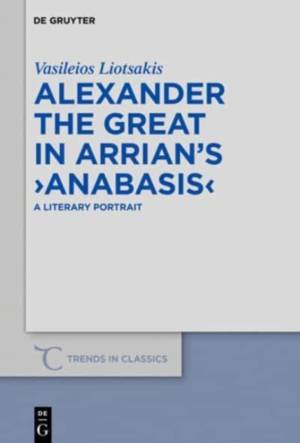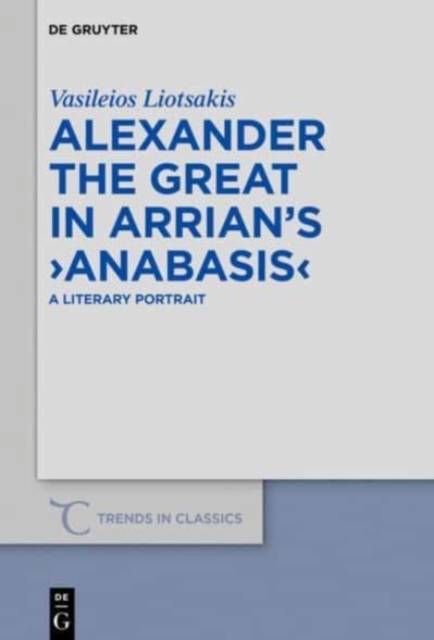
- Afhalen na 1 uur in een winkel met voorraad
- Gratis thuislevering in België vanaf € 30
- Ruim aanbod met 7 miljoen producten
- Afhalen na 1 uur in een winkel met voorraad
- Gratis thuislevering in België vanaf € 30
- Ruim aanbod met 7 miljoen producten
Zoeken
€ 246,45
+ 492 punten
Omschrijving
Arrian's Alexandrou Anabasis constitutes the most reliable account at our disposal about Alexander the Great's campaign in Asia. However, whereas the work has been thoroughly studied as a historical source, its literary qualities have been relatively neglected, with no autonomous monograph existing on this matter. Vasileios Liotsakis fills this gap in the studies of Alexander the Great's literary tradition, by offering the first monograph on Arrian's compositional strategies. Liotsakis focuses on the narrative techniques and verbal choices, through which Arrian allows praise and criticism to intermingle in his portrait of the Macedonian king. His main point of argument is that Arrian systematically exploits an abundance of narrative means (military descriptions, presentation of peoples, march-narratives, anachronies, and epic elements) in order to draw the reader's attention not only to Alexander's intellectual skills but also to the fact that the king was gradually corrupted by his success. This book puts Arrian's literary contrivances under the microscope, sheds new light on unexplored aspects of the Anabasis' narrative arrangement, and contributes to the studies of Alexander's prosopography in Classical historiography.
Specificaties
Betrokkenen
- Auteur(s):
- Uitgeverij:
Inhoud
- Aantal bladzijden:
- 295
- Taal:
- Engels
- Reeks:
- Reeksnummer:
- nr. 78
Eigenschappen
- Productcode (EAN):
- 9783110658736
- Verschijningsdatum:
- 6/05/2019
- Uitvoering:
- Hardcover
- Formaat:
- Genaaid
- Afmetingen:
- 156 mm x 234 mm
- Gewicht:
- 635 g

Alleen bij Standaard Boekhandel
+ 492 punten op je klantenkaart van Standaard Boekhandel
Beoordelingen
We publiceren alleen reviews die voldoen aan de voorwaarden voor reviews. Bekijk onze voorwaarden voor reviews.








